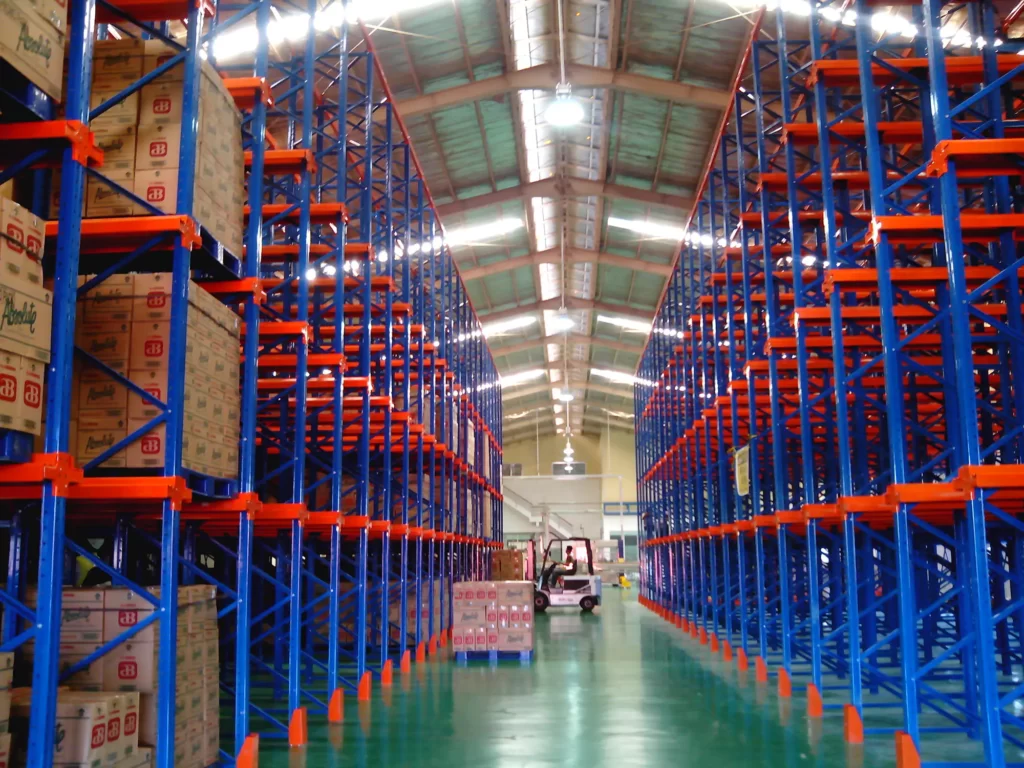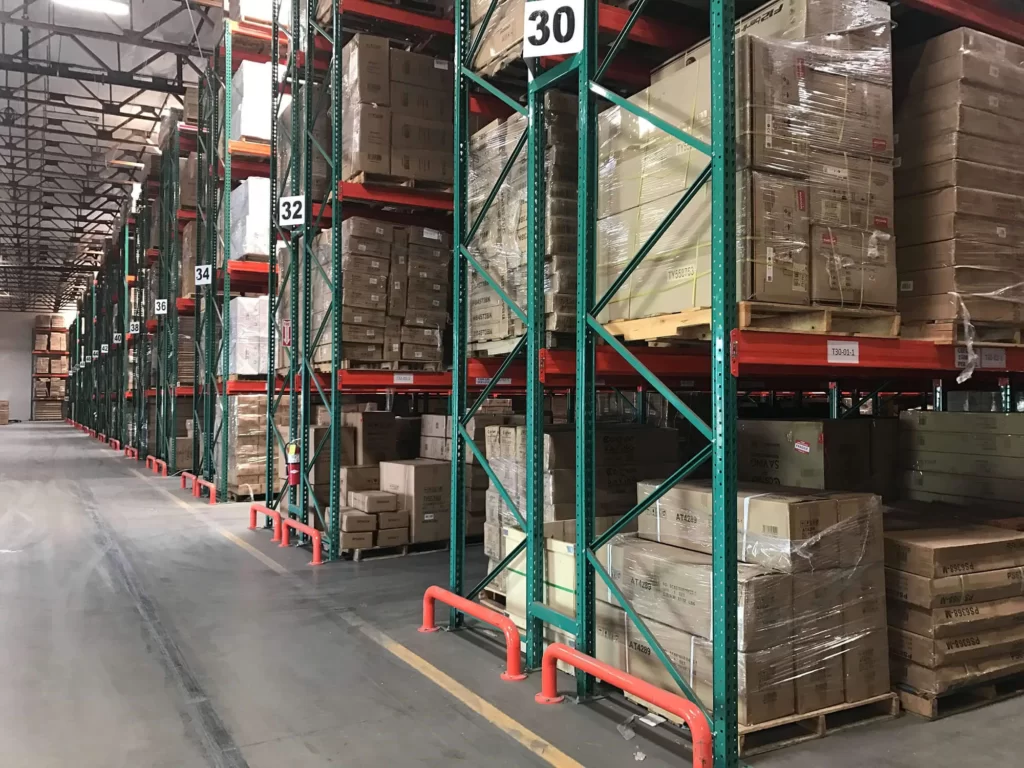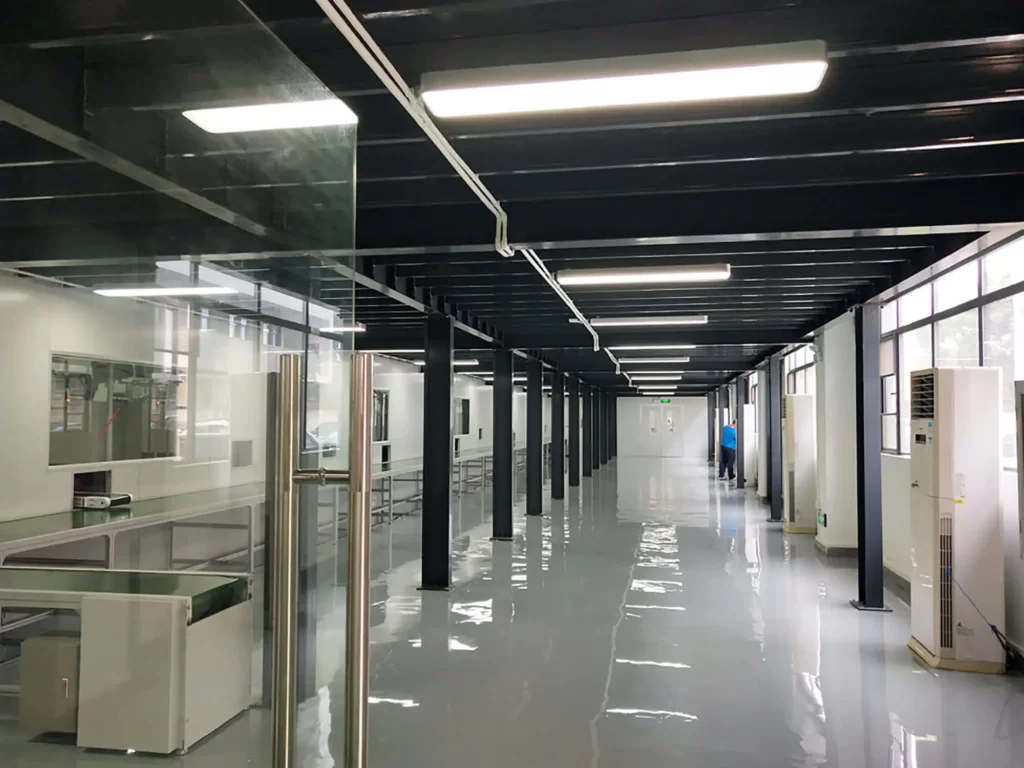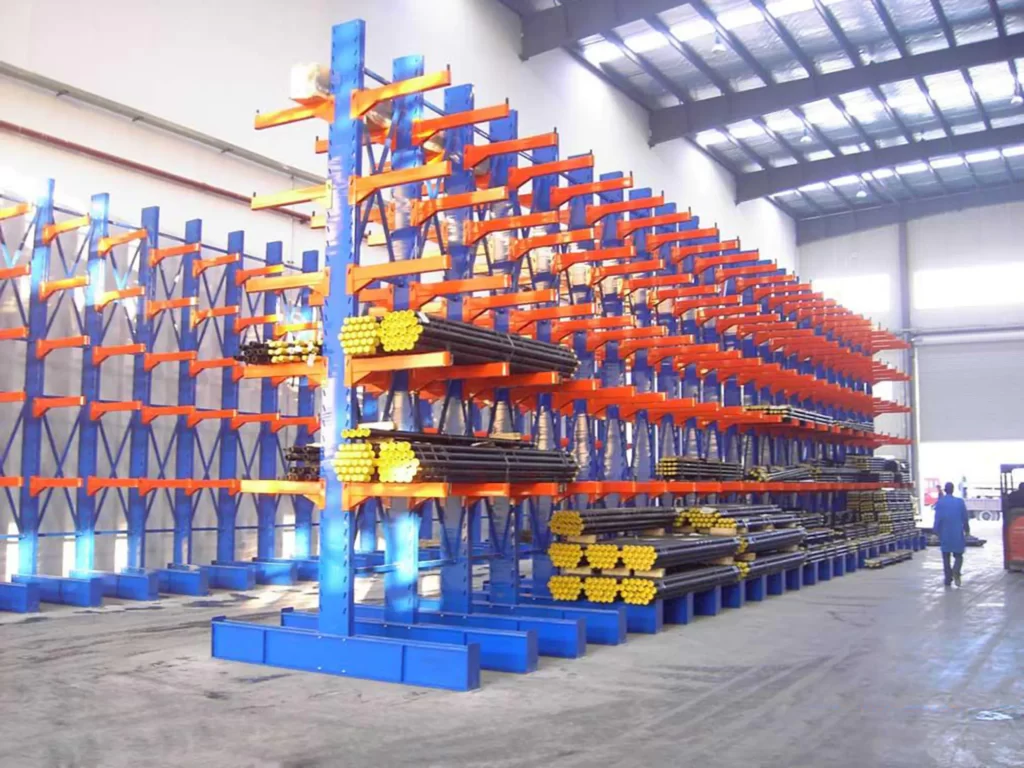Warehouses are crucial for businesses because that is where businesses hold their inventory till it is dispatched to the customers. There are different types of warehouses and each suits a different requirement.
If you are also looking to learn about the varied types of warehouses, their features and the businesses to which they might suit, the guide below will help you. So, let’s read on.
Major Warehousing Types
The different types of warehouses are discussed below which will give you an insight into the purpose of each.
Public Warehouses
A public warehouse is a type of warehouse that is shared by multiple businesses, you rent out a space for your products for the purpose of storage. There are multiple businesses having their products stored within the same warehouse.
Key Features:
The public warehouse has some key features which are as follows:
- A public warehouse is a cost-effective option as you do not have to make any investments for purchasing the warehouse and equipment. You are bound to make payment for the storage space you are using.
- It is a highly flexible option and when you need more space you can rent more to match the storage requirements.
- It is suitable for such businesses that need a temporary storage space with no long-term commitments.
- You have access to shared equipment and technology.
Best Suites For:
A public warehouse is suitable for the following nature of businesses:
- It is suitable for small-sized businesses that look for budgeted storage options.
- Businesses that need to meet the seasonal demands and require added space.
- Businesses that have just started their business and want to minimize the initial investments.
Private Warehouses
Private warehouses are individual business warehouses that businesses have acquired by purchasing them. Those warehouses belong to individual businesses and they have their storage managed in them.
Key Features:
The key features of the private warehouses are as follows:
- Businesses having private warehouses can exercise full control over them in terms of their operations, layout,and management of inventory.
- These warehouses can be customized based on their requirements and they can manage the racking systems, technological features, and other processes conveniently.
- Private warehouses are highly suitable for inventory that is sensitive or has a high value as they offer enhanced security.
Best Suites For:
The private warehouses are suitable for the following nature of buses:
- It is suitable for large businesses that have a high volume of inventory to be stored.
- Businesses that produce and hold specialized inventory need to have specific conditions maintained for their storage.
- Businesses that plan to scale up in the future find private warehouses suitable to meet their growth in the long run.
Bonded Warehouses
Bonded warehouses are such warehouses that are government-authorized spaces holding products till the duty is paid. Once the duty is paid or they are sold, they are removed from the warehouses.
Key Features:
The key features of the bonded warehouse are as follows:
- Bonded warehouses require high security which ensures the safety of the goods.
- These warehouses work under regulatory guidelines and have to comply with customs laws.
- Businesses can hold their inventory in these warehouses till they pay customs duties.
- They offer the flexibility of storage and can hold the products for a longer term.
Best Suites For:
Bonded warehouses are suitable for the following businesses:
- Businesses that import products internationally and want to hold them till the customs duty is paid.
- Manufacturers importing raw materials to process can produce products.
Distribution Centers
Distribution centers are such types of warehouses that hold the inventory for a very short time period till it is dispatched to the customers.
Key Features:
The key features of distribution centers are as follows:
- It handles the inventory efficiently and reduces the time for storage.
- The distribution centers have automated inventory management systems which helps to optimize operations.
- They are usually located close to the markets and transportation systems so that the delivery time is reduced.
- These warehouses can handle varied volumes of goods which can handle the demands during varied seasons.
Best Suites For:
Distribution centers are suitable for many businesses and some of these comprise the following:
- These facilities are suitable for e-commerce businesses, as they need to fulfill a high volume of orders in less time.
- These are meant to transport goods to retail stores from the manufacturers.
Cold Storage Warehouses
Cold storage warehouses are meant to handle the inventory items which are perishable in nature. Such products need a specific temperature-controlled storage space to ensure their freshness and life.
Key Features:
The key features of a cold storage system comprise the following:
- Cold storage warehouses have refrigerators that are meant to keep the perishable items cold.
- These warehouses have climate control systems that control the humidity and temperature to ensure optimal conditions for the items.
- They comply with food safety and regulatory requirements to ensure the quality of food items.
Best Suites For:
Cold storage warehouses are suitable for the following businesses:
- Food businesses that require storing frozen items, fresh produce like vegetables, and fruits, cold beverages, and other perishable food products.
- Pharmaceutical businesses may also need cold storage warehouses to ensure maintaining the temperature of some of the medications that are sensitive.
Cooperative Warehouses
Cooperative warehouses are warehouses that are owned by groups of cooperatives that need to have their logistics managed in a combined way.
Key Features:
The key features of a a cooperative warehouse are as follows:
- It offers an affordable option where the cost is reduced by sharing the warehouse.
- It offers streamlined management and high efficiency as all the activities for the operations of warehouses are shared.
- The overheads are reduced as the businesses share them rather than handling them individually.
Best Suites For:
Cooperative warehouses are suitable for various businesses and some of these are:
- It is suitable for small businesses that need to spend less on the warehouse.
- Group of particular businesses that share interest and prefer sharing the warehouse too.
Smart Warehouses
Smart warehouses are highly advanced warehouses that feature innovative technology. Systems like robotics and IoT are used for managing warehouse operations.
Key Features:
The key features of the smart warehouse are discussed below:
- They consist of robotic systems that help to sort, pack, and pick items reducing the chances of errors.
- They consist of installing IoT-based sensors that help to track the shipments and inventory status.
- They incorporate energy efficiency systems which help to reduce the image of the environment.
- Smart warehouses have automated systems incorporated with the ERP and supply chain to ensure that the overall operations are well connected.
Best Suites For:
The smart warehouses are suitable for various businesses some of which are as follows:
- Companies that are dependent on innovative technology like e-commerce, and electronics and require high speed in inventory management,
- Businesses that are inclined towards reducing the cost of operations, look forward to scalable operations and focus on customer satisfaction.
- Businesses that have to handle a high volume of products are required to automate and streamline their processes.
On-Demand Warehouses
On-demand warehouses are such warehouses that can be rented when required. These are warehouses equipped with space as well as facilities that can be taken when needed.
Key Features:
The on-demand warehouses have some features which are as follows:
- On-demand warehouses offer flexibility in terms of payments and based on the demand one can scale the storage and pay accordingly.
- They are suitable for temporary storage requirements like seasonal demands.
- The businesses do not require investment in the warehouses for the short term reducing the overheads.
Best Suites For:
The on-demand warehouses are suitable for various businesses and some of these may comprise the following:
- E-commerce startups require temporary storage solutions that can be adjusted in terms of space when needed.
- Businesses that have varied needs for storage throughout the year.
- Businesses that are expanding into new regions and testing the demands of their products may need a temporary space for storing goods.
Agricultural Warehouses
Agricultural warehouses are meant to store agricultural products like crops and grains. These products are stored in the warehouse and will be distributed further.
Key Features:
The key features of the agricultural warehouse are as follows:
- Agricultural warehouses are designed to ensure that pest control measures are undertaken consisting of sealed storage and fumigation to prevent contamination.
- To ensure the freshness of agricultural products, these warehouses have climate regulation which keeps the perishable products fresh in the longer run.
- They have separate zones for each type of agricultural products like grains, seeds, and crops are all stored separately.
Best Suites For:
The agricultural warehouse proves to be useful for various businesses and groups of people and these are as follows:
- Farmers prefer having them to store their crops which are harvested so that they can be kept safe till sold or further processed.
- Agricultural businesses may have shared these warehouses to store their produce.
- Businesses involved in agriculture find them suitable for large-scale distribution and storage.
Factors to Consider When Choosing a Warehouse Type
Selecting the right type of warehouse for your business is one of the major considerations that you will make. When it comes to selecting such a warehouse, some of the factors to consider are as follows:
Storage requirements
The time period for which you need to store your inventory is a consideration in selecting the warehouse. If you need them for temporary storage to meet the seasonal demands and immediate turnover of inventory then opting for distribution centers and on-demand warehouses can be a suitable approach.
However, when you need the warehouses in the longer run then opting for private and public warehouses is a preferred choice based on your budget. You can determine the duration of storage to optimize the cost of the warehouse and check if they align with your operational requirements and time to hold inventory.
Nature of goods
The nature of the goods you will store in the warehouse will also determine the type of warehouse you will need. Perishable items like pharmaceuticals and food require cold storage warehouses that have proper climate control systems. They help to maintain the quality of medicines and food.
However, if you need a warehouse for non-perishable products you can go for the basic private and public warehouses. Some businesses deal with chemicals that possess hazard risk and are flammable. They require special warehouses that help meet the regulatory requirements. So, based on the product type you can determine the warehouse you will need.
Cost implications and budget
The budget you have for the purpose of a warehouse is also a considerable factor. There is a huge difference between owning a warehouse and renting it. The initial investment, maintenance, and other operational aspects of owning a warehouse end up costing a lot. However, you can benefit in the longer run when you have a high volume of products to store.
Similarly, when you rent them you just have to pay for the rent and they can also meet the fluctuation storage requirements your business may have. So, based on the budget you have you can decide whether to rent out or purchase a warehouse. Options like public warehouses and on-demand warehouses cater to the renting option and are cost-effective.
Proximity to suppliers and customers.
The warehouse locations impact the supply chain. Warehouses that are closer to suppliers help to reduce the cost of logistics and also save time. The orders can be fulfilled easily by having proximity to customers.
In such cases, distribution centers are suitable because they are usually located close to the customers and hence reduce the time of travel. Also, opting for on-demand warehouses in specific locations that are close to customers is also a suitable choice.
Conclusion
Learning about the different types of warehouses is very important to select the right option for your business. The dependency of a business on storage is crucial and cannot be compromised. Hence, when it comes to setting up a warehouse and having the right racking systems for organizing it, we at Mracking can help you. So, get in touch with us and we can also customize the storage systems for your business needs.








